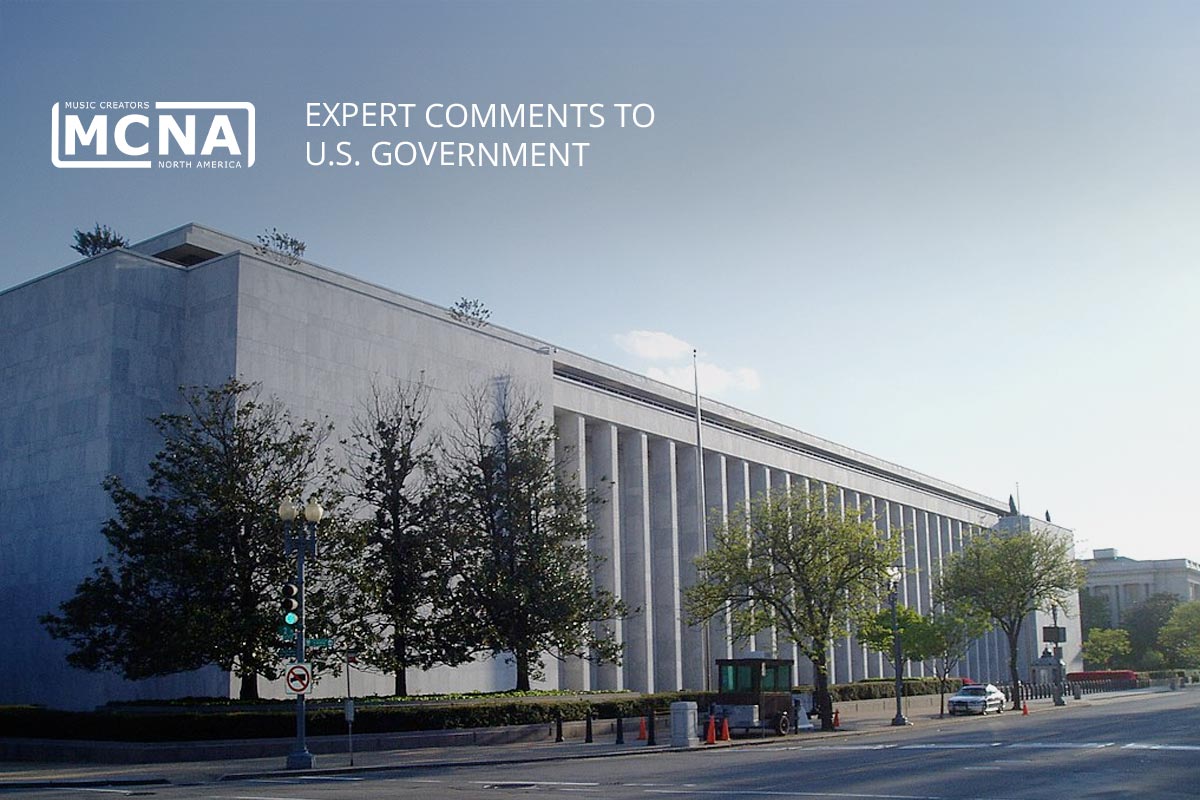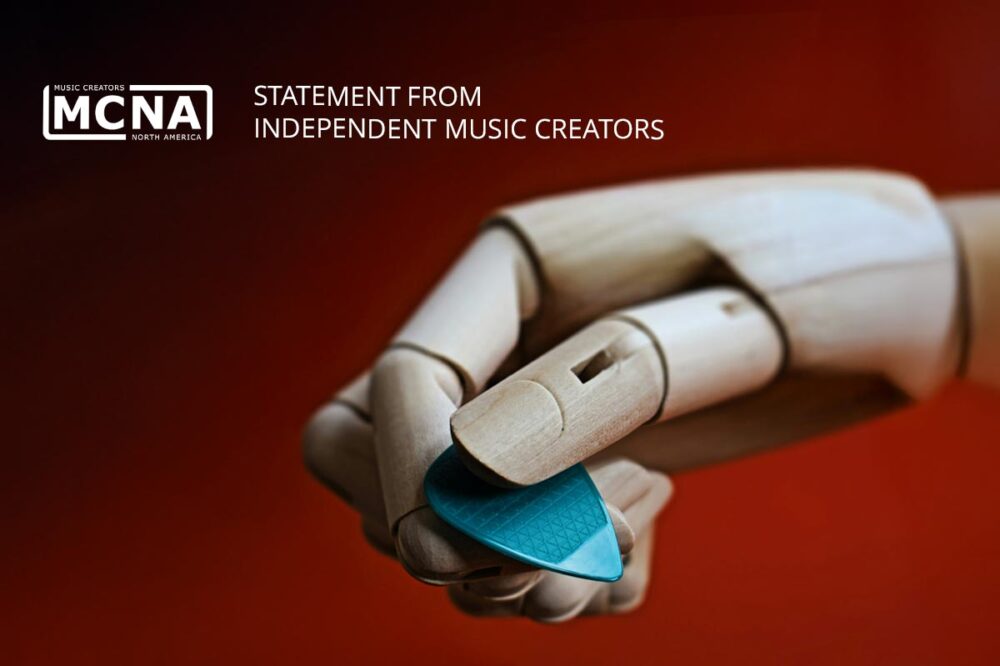Re: Creators AI Legislative Proposal
The Honorable Martin Heinrich
United States Senate
709 Hart Senate Office Building
Washington, DC 20510
Dear Senator Heinrich,
We write in thanks for all the hard work you and your staff have invested in acting to address the urgent matter of Generative Artificial Intelligence (GenAI) and congratulate you on the important step forward of recently unveiling the Senate GenAI legislative roadmap. Our groups seek today to respectfully follow up with a proposal that we believe will help to resolve this existential issue for human creators far better than endlessly repetitive litigation, as we stand at the dangerous crossroads of rapidly advancing artificial intelligence technologies (which we support) and the need to safeguard the protection of creators’ rights across all artistic disciplines (which we desperately require).
As we are all aware, the growth of GenAI presents both immense opportunities while at the same time posing enormous dangers to the future of artistic expression and human progress in the United States and elsewhere. The Constitution of the United States grants Congress the power to promote the progress of the arts and sciences by guaranteeing certain exclusive rights to creators in their works. It is in that unanimous spirit of the Founders that we urge you to consider clarification and implementation of a new category of right specifically and solely concerning GenAI ingestion, separate from and in place of those applicable rights enumerated in Section 106 of the US Copyright Act currently being baselessly ignored by unauthorized users.
This new, sui generis right will unequivocally establish that human creators are to be fairly compensated for the voluntarily licensed, ingested use of their copyrighted works in GenAI systems– a computer-driven process that uniquely produces commercially-competing derivative content, often without consent. By enacting such legislation, Congress would effectively put an end to specious claims of a growing number of unlicensed, GenAI ingestive users that their uses do not trigger the need to license reproductive, derivative and other rights granted to authors under Section 106.
With this simple legislative shift, Congress would eliminate what might amount to decades of litigation forced upon creators against some of the world’s largest and wealthiest conglomerates, many of which reflexively refuse to recognize creators’ rights and the necessity under law of compensating those creators for the use of their works. Their duplicitous reasoning is simple: since the exorbitant expenses of copyright litigation (versus the individual monetary amounts at issue) make rights enforcement financially unsustainable, they need not worry about liability. The hypocritical adoption of this tactic by Big Tech not only represents a misguided choice of short-term profits over long-term economic health of an important U.S. financial sector, but also a complete rejection of centuries of intellectual property principles that have made the output of America’s human creative community the envy of the world.
Even more consternating, it is clear that unregulated GenAI poses a fundamental threat to the unique characteristic that has distinguished humans from other species for millennia: our ability to create artistic works that communicate new ideas to our fellow human beings throughout the world. This crucial facet of human existence, a sine qua non for progress throughout history, is often honed over a period of years or even decades by creators who devote themselves to learning from real-world experience and living off the hard-earned fruits of their creative labors. It is axiomatic that putting an end to that tradition will cause enormous harm to the progress of human culture throughout our Nation and around the world, and that such damage would not just be confined to the arts.
Under such circumstances, the American musicians, composers, songwriters, photographers and others that our groups represent are now experiencing a deep sense of injustice at the tokenization through wholesale use of their works in GenAI systems without consent, credit or compensation. Worse, the purpose of that unfair use is to artificially manufacture content that competes with their own works in the marketplace. To address this, we must empower creators to retain agency over their life’s artistic output, especially when those human works are being taken simply to fuel the spread of GenAI’s competing, machine-constructed derivatives.
As an important side note concerning the urgency of prompt legislative action in this regard, in the recent past unauthorized mass-users of protected works have ignored their moral and legal obligations to maintain records of their uses on a title by title basis, a process easily accomplished in a digitized world. Since the dawning of the digital age, the lack of such data has been an enormous problem for creators seeking restitution for past, unauthorized digital distribution of their works amounting to hundreds of millions of dollars in lost revenues. This unscrupulous behavior is playing out once again in the GenAI context right now, a case of history repeating itself that we passionately maintain must be halted and rectified immediately.
Our Proposal
To reiterate our proposal with greater specificity, the sui generis solution we propose is the establishment of an exclusive right for human creators to control and be credited and compensated for the ingestion of their copyrighted works in the so-called “training” of large language models (LLMs) that produce commercially available content. This new right, if enshrined in law, would replace the general rights within section 106 as applied in GenAI contexts, with a right specifically tailored to fit GenAI uses. The new right would vest by law in human creators (including employees for hire), but be fully assignable or licensable in a conveyance executed on or after the effective date of the legislation.
This approach would have several key advantages:
- It would allow the “training” of LLMs to continue under easily-acquired, voluntary licenses, while ensuring fair compensation for creators (subject to future rules pertaining to GenAI output);
- It would compel commercial LLM providers to pay fair, market-value compensation for what may be the most valuable input to their systems – the creative expression and labor of human artists, and;
- It would regularize under law the steps necessary to utilize a creator’s lifetime of work to technologically manufacture derivatives potentially used to compete against them.
We urge you to consider this streamlined approach to standardizing GenAI policy as a means of preserving the delicate balance between technological progress and the rights of creators. By affirmatively establishing an exclusive right of ingestive GenAI use for creators, we can foster an environment where technical innovation and artistic expression can thrive in harmony, ultimately benefiting all members of society and serving as a global example of cooperative progress in the advancement of both culture and economics.
We would welcome the opportunity to discuss this matter further and provide any additional information or clarification you may require. Moreover, we look forward in the near future to discussing additional, indispensable protections for creators pertaining to GenAI output.
In sum, the time to act is now, as the future of creative expression hangs in the balance. We present that danger not as hyperbole, but as fact.
Our suggestions for legislative language are appended to this letter for your consideration, which is enormously appreciated.
With sincerest thanks,
SGA, SCL, MCNA, ASCRL
Cc:
Charles J. Sanders
Daniel Gervais
Draft legislative language [subject to conformance with title 17]
106B. Rights of Integrity Granted to Human Authors to Deny or Consent to the Ingestion of their Work as Part of Generative Artificial Intelligence Systems
(a) Independent of the exclusive rights provided in section 106, the human author(s) of any work (which shall for purposes of section 106B include human creators of works made for hire) shall be vested with the exclusive right to consent to or to deny the ingestion of such work into any Generative Artificial Intelligence System.
(b) The exclusive right established in subsection (a) of this section 106B shall not be subject to the limitations set forth in section 107.
(c) Nothing in this section 106B is intended to inhibit the right of any defendant in an action pertaining to infringement of the exclusive right established in subsection (a) to assert a defense to such infringement based upon US Constitutional rights.
(d) Anyone who violates the exclusive right established in subsection (a) of section 106B is an infringer of such right and shall be subject to the civil and criminal remedies for violations [identical to those set forth in Sections 1203 and 1204 of this Act.] As used in this subsection, the term “anyone” includes any State, any instrumentality of a State, and any officer or employee of a State or instrumentality of a State acting in his or her official capacity. Any State, and any such instrumentality, officer, or employee, shall be subject to this title’s provisions in the same manner and to the same extent as any nongovernmental entity.
(e) The exclusive right established in subsection 106B(a) above shall be freely transferable and assignable by the human author, provided however, that such transfer and assignment must be first signed to in writing on or after the date of enactment of this subsection 106B by the human author, or if the human author shall be deceased, by the human author’s heirs representing no less than fifty percent of the deceased author’s rights as to each particular work. Notwithstanding the foregoing, no Generative Artificial Intelligence System may condition the use of the system upon a human author’s waiver of or grant to the system of an assignment of the human author’s rights under this section.
(f) The voluntary licensing of the exclusive right established in subsection (a) of 106B, including but not limited to negotiation of remuneration in the form of compensation and credit of any kind and subject to record keeping and audit provisions specified in any manner, may at the human author’s discretion be conducted on behalf of the human author in a collective manner together with other copyright owners and works, which collective licensing activities shall not be considered a violation of the antitrust statutes of the United States.
(g) For purposes of the subsection 106B, the term “Generative Artificial Intelligence System” shall be defined as machine-based content generators that are artificially “trained” on a set of ingested, often copyright-protected data to find patterns within that data, and thereafter to generate additional content based upon such data (including text, image, video, audio, multimedia, or other forms of output) pursuant to a given set of human-defined or machine-derived objectives or “prompts.”
(h) The first sentence of Section 411(a), and of Section 412, shall be amended to read:
“Except for an action brought for a violation of the rights of the author under section 106A(a), and 106B, .




